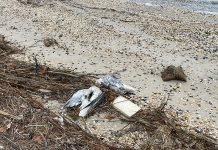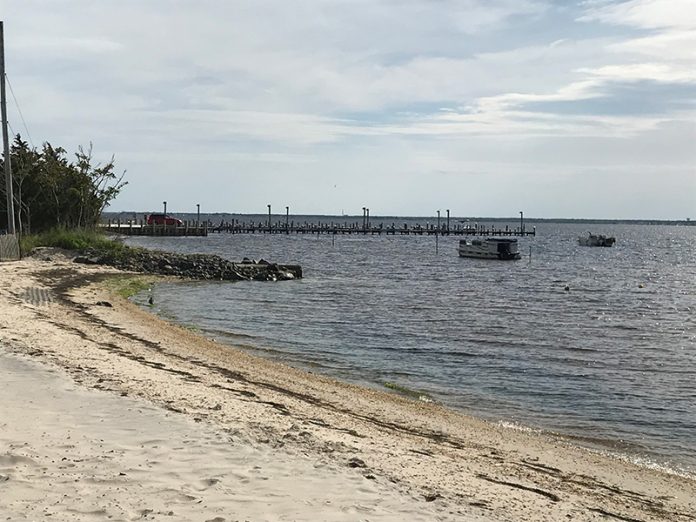
BERKELEY – All the testimony has finally been given. Witnesses have spoken and many documents were entered in as evidence. The decision as to whether South Seaside Park should leave Berkeley Township will be…next year.
South Seaside Park residents have often argued that they are paying an inordinate amount of taxes and said that they don’t receive as many services as people on the mainland. Located next to Island Beach State Park, some residents there have said that they share more in common with Seaside Park than with mainland Berkeley.
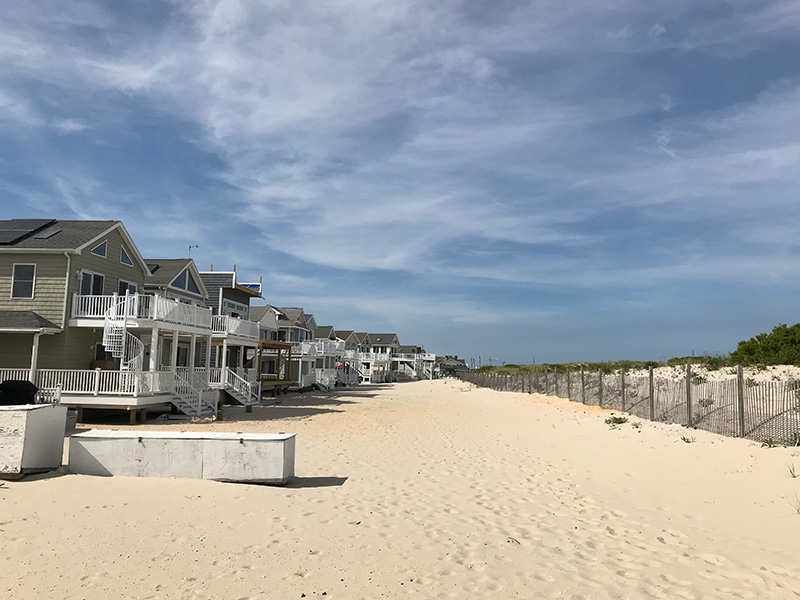
For about five years now, the Planning Board has hosted a hearing over whether the section of the township should be allowed to de-annex, or secede, from Berkeley Township. The issue had been headed up by the South Seaside Park Homeowners and Voters Association.
However, the Planning Board did not vote at the most recent meeting. Board Attorney Gregory McGuckin said that the next meeting of the board would be spent determining what evidence every board member needs to see. They need to read or listen to testimony from meetings they missed. Then, they would vote at a meeting in January of 2020.
The first hearing on this case was in January of 2015, so the last hearing will mark five full years of testimony. However, there were some meetings cancelled during that time. Additionally, the Berkeley Planning Board tries to limit these meetings to about two hours, whereas other towns potentially go much longer, sometimes well into the night.
During the part of the meeting where Planning Board members asked questions, at least one referenced testimony from 2015.
During the last meeting, the attorney for South Seaside Park (SSP), Joseph Michelini, wrapped up his questioning of Stuart Wiser, vice president of planning and environmental services for ARH Associates, who was retained by the Planning Board. Then, Planning Board Attorney Gregory McGuckin questioned him.
What Could Happen?
If South Seaside Park left, they would not form their own town. They would join another. Seaside Park is the only one that shares a border, so that is the likely choice. Seaside Park officials have, by law, stayed out of these discussions.
Some mainland residents are concerned that the loss of ratables would make their taxes go up. Ratables are the property that a town can tax. For example: a house and the land it’s on. South Seaside Park has a lot of shore homes that pay a lot in taxes. The money to run the town has to be raised from somewhere, so it would raise taxes on the rest of the town. One study said that it would raise taxes about 8.5 cents per $100 of assessed valuation. The example given was that the average homeowner would pay $156 more a year.
A township official had stated that taxes would go up initially, and the town would use some surplus funds to fill the hole. Then, new construction would fill that hole in less than five years.
During the last five years, between 2014 and 2019, the town’s taxes increased two of those years. This averaged $94 a year, according to Michelini’s figures.
Wiser said that that tax increase would have a disproportionately higher impact on retirees or those who are on lower income.
One of Michelini’s points was that de-annexation wouldn’t impact the town’s finances as much as many fear. Michelini said that the loss of SSP’s ratables will be offset by construction going on in Bayville. There is a proposal for building 60 homes with some commercial property in what is known as the WOBM pit, for example. This proposal has not yet been heard by the Planning Board.
However, Wiser said that new homes bring more services, and that could increase school taxes.
Councilman John Bacchione (a member of the Planning Board) asked if the township’s household median income ($43,000) would go down if they lost South Seaside Park. It had already been established that the residents there were close to 100 percent employed, which is far different than the retirement communities on the mainland. He also asked if the town would have a harder time attracting businesses if the median income went down. He compared it to neighboring Lacey, which has a median income of $71,000 and can attract big box stores.
Wiser answered that the median income would go down and that might impact businesses settling here.
McGuckin also said that the officials from whatever town SSP joins would have to get together with Berkeley to work things out, like transfer of debt.
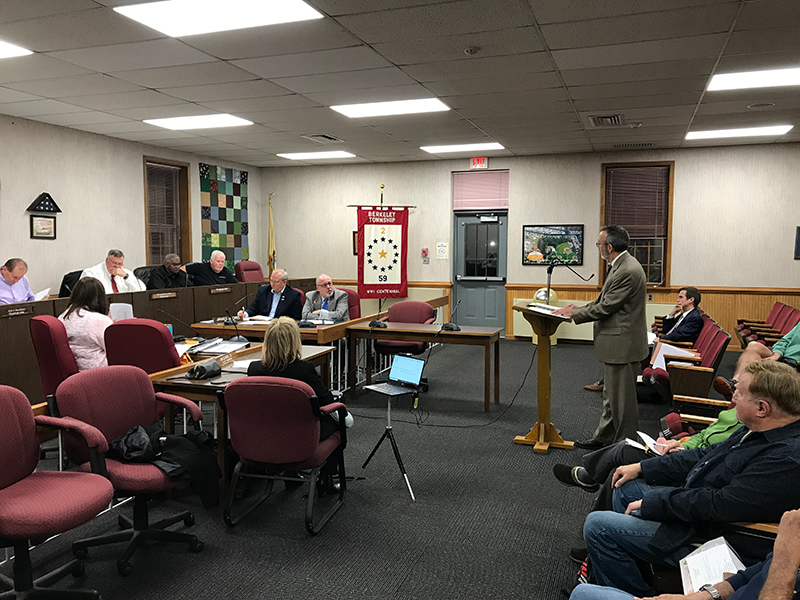
Is The Town Fighting Back?
As the mainland residents would have more to lose than to gain if SSP left, Michelini has been trying to prove that Berkeley officials are fighting the de-annexation instead of staying neutral.
A few Planning Board members had follow-up questions for Wiser, and McGuckin asked several. Michelini objected to some of these questions. He said that McGuckin, in his role as Planning Board attorney, should be neutral. He said that McGuckin’s questions were leading, and “in the nature of advocacy.”
McGuckin said that the Board needs all the information in order to make a decision so he was asking questions for more details.
“This is exactly the role the board attorney should take in this situation,” McGuckin said. “This is a fact-finding mission.”
This has been a sticking point throughout Michelini’s line of questioning. He has asserted that professionals paid by the township were being biased, and giving testimony against South Seaside Park residents in their bid for leaving. The professionals have maintained that they are impartial.
Michelini tried to characterize Wiser as coaching witnesses like Township Chief Financial Officer Fred Ebenau and Police Chief Karin DiMichele. Wiser said that was incorrect, and that he was making sure all the witnesses had the correct information.
These were referred to as annotated transcripts from previous meetings.
Wiser said that he pulled information from transcripts that he thought was pertinent testimony. For example, the police wouldn’t have to read through the Public Works portion, and vice versa.
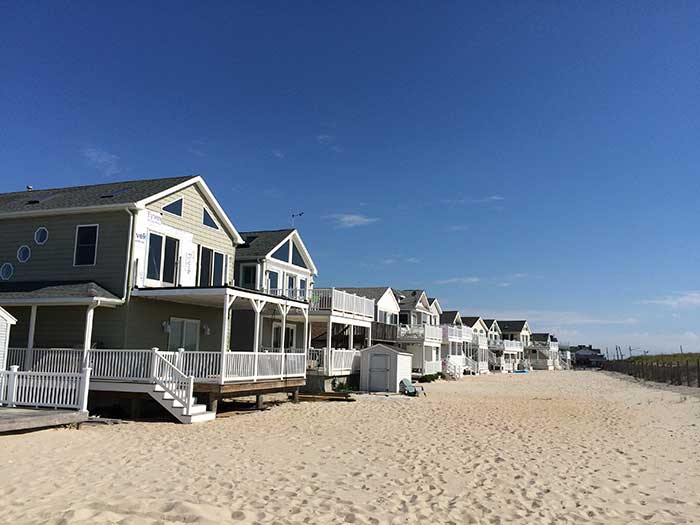
What’s Next?
The Planning Board members will make sure they all have read or heard the testimony of all five years. They are to vote on whether to let SSP de-annex in January.
SSP tried to leave once before, but Berkeley did not allow them. It went to the courts and in 1978, the Supreme Court of New Jersey declared that Berkeley’s actions were “not based on reasonable grounds nor on credible evidence.” It ordered Berkeley to agree to SSP de-annexing back then. However, they did not get far and is still with Berkeley today.
It is likely that if SSP is not allowed to go, that the SSP residents will take the township to court.




